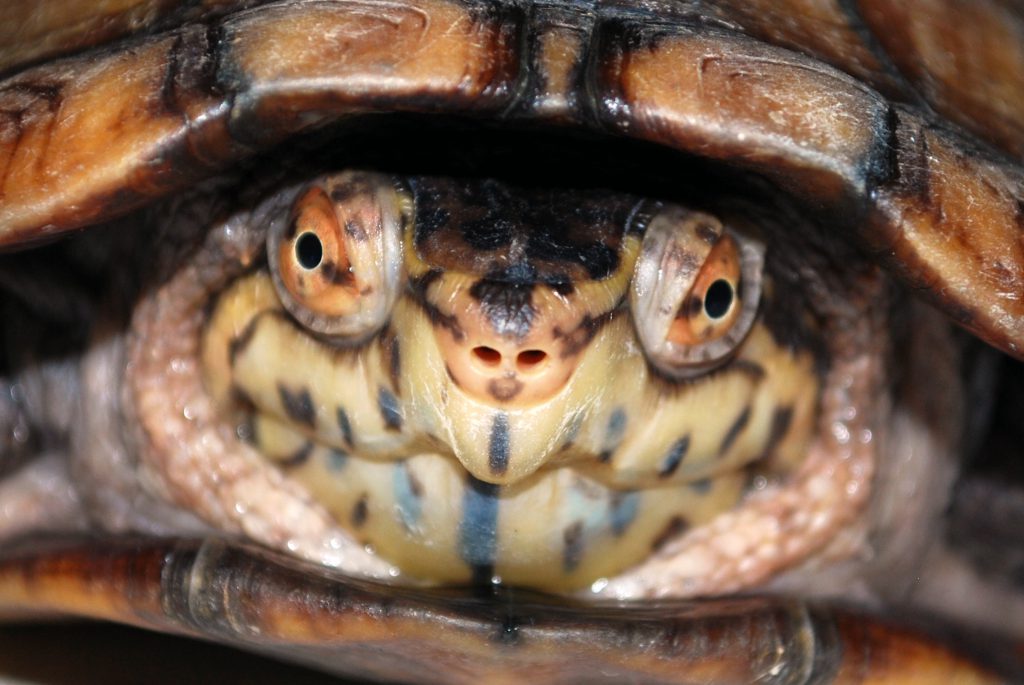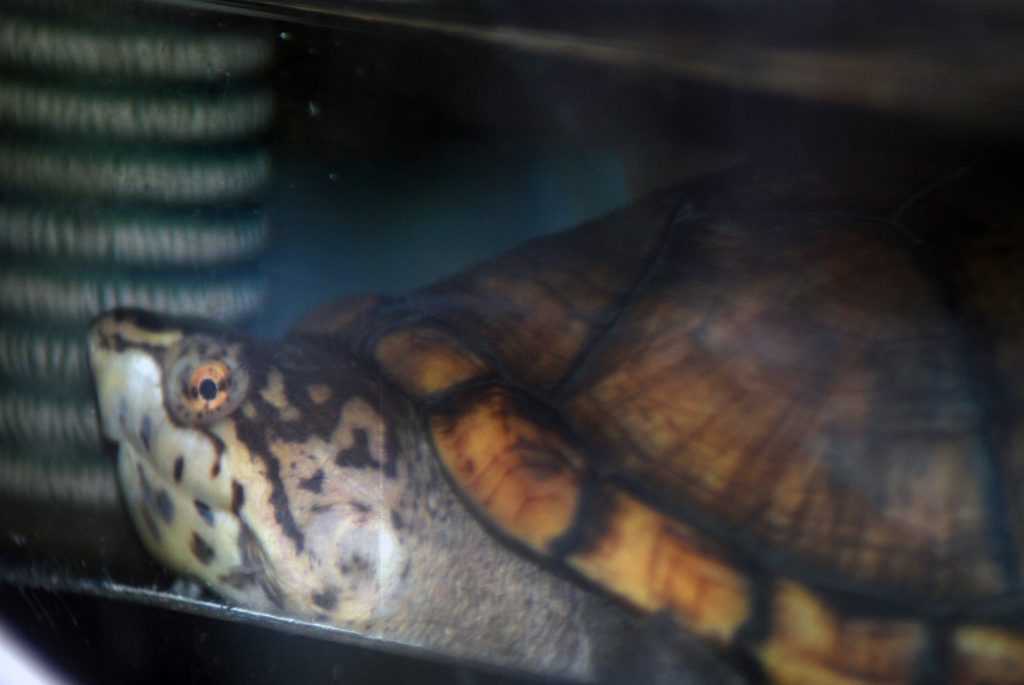Kinosternon scorpioides albogulare
Reptile | Colombia, San Andrés, Costa Rica, El Salvador, Honduras, Nicaragua, and Panama


Animal Info
Like all turtles, mud turtles have a hard outer shell that helps them avoid being eaten. The plastron has two kinetic hinges generally with lobes, so they are able to completely close ventral openings of the shell.
This species is host to at least four different species of nematode parasites.
Diet
In the wild: Fruits, terrestrial and aquatic invertebrates (molluscs and arthropods), and dipteran larvae, which is common prey
Habitat
Freshwater ponds with vegetation and macrophytes, slow running streams, swamps, floodable mangrove forests that are not permanently connected to the sea
Conservation Status
International Union for Conservation of Nature (IUCN) – not evaluated
Extant populations have limited contact with humans. Some of their population is within already-protected areas, and they have a high population density; therefore are not considered threatened.
